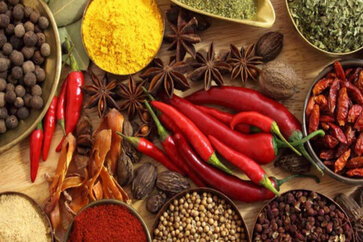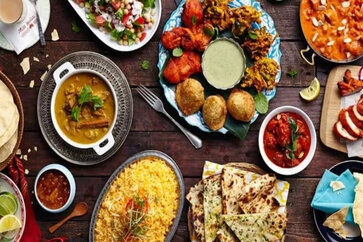What Is The Ayurvedic diet?
 Thanks to Ayurveda, a nutritional method that is much more than a diet: it is a philosophy of life based on Indian medicine. Here we will explain the basics. Ayurveda has centuries of tradition in it an Ayurvedic diet, a regime that is based on the millenary medicine practiced in India. It benefits physical and mental health.
Thanks to Ayurveda, a nutritional method that is much more than a diet: it is a philosophy of life based on Indian medicine. Here we will explain the basics. Ayurveda has centuries of tradition in it an Ayurvedic diet, a regime that is based on the millenary medicine practiced in India. It benefits physical and mental health.
What is Ayurveda?
It means “Science of Life” and is the traditional medicine of India. It is a system of healing, a way of conceiving health as a balance of body, mind, and spirit, and a whole philosophy of life.
In this, the disease is understood as a matter of imbalance of the body and focuses on the elimination of its cause and not only to alleviate the symptoms but also seeks to balance the body, mind, and spirit.
Therefore, the methods used are responsible for all this: advice on lifestyle and diet, massage, use of medicinal plants, meditation, etc. Ayurveda is based on the theory of the five elements of which we are constituted:
- Water
- Earth
- Fire
- Air
- Ether
- Personalized diet
Not all people should follow the same diet. Ayurveda classifies people according to the “dosha” predominant in it, that is, according to their body type, their character, and the element or elements predominant in each of them (water, earth, fire, air, and ether).
Well, the Ayurvedic diet varies depending on the body type of each person, that is, their “dosha”, because it is assumed that some do better with certain foods and, moreover, are cooked in a specific way.
For that reason, before making the diet it is important to know what “dosha” you are to know what food is right for you. We explain what they are and what features characterize each of them.
Body types
The three corporal types are pita, Vata, and Kapha and their mixtures.
- Pita: The pitta people are characterized by the predominant element in the fire. They have a medium constitution, with a tendency to irritate and get angry easily, with pale or reddish and freckled skin, aversion to the sun, enterprising character, and blonde, light brown, or reddish hair.
- Vata: The Vata people usually have a light, thin build, perform activities quickly, are enthusiastic, and have a great imagination, character, and changing energy. In them, the air element predominates.
- Kapha: The Kapha people have a strong constitution, firm energy, calm and relaxed personality, and a tendency to obesity. They dominate the earth and air elements.
Recommended foods
Kapha: For Kapha people, foods should be light, dry, warm, spicy, bitter, and astringent. The diet should be rich in vegetables. Avoid dairy and salt. Aubergines, lettuce, broccoli, potatoes, lentils, and ginger are recommended.
Vata: For Vata, the food must be very nutritious, cooked, tempered, moist, and mildly seasoned, with spices such as cilantro and thyme. Vata people can take dairy products, chicken and turkey meat, fish, and fruits (they can be cooked), such as oranges, bananas, or apricots.
Pitta: For pitta, they must be cold in nature, with few spices, with a sweet taste, and some bitter and astringent. Asparagus, broccoli, cabbage, leafy vegetables, zucchini, apple, pear, chickpeas, olive, sunflower, and soybean oils are recommended foods.
The secret of success
In this diet, the routine is very important; Always carry the same schedules. Also, remember that it does not prohibit any food. It only recommends limiting some in favor of others, according to the corporal type. The important thing is to listen to the body because at each moment it will ask what it will best sit on and reject what it does not tolerate. Of course, red meat and saturated fats should be avoided.
This diet varies depending on the season of the year. In autumn the recommended diet is that of the Vata condition. During the winter and until early spring, the Kapha should be done. And since the end of spring and during the summer, the diet should be recommended for pitta people.
Ayurveda, traditionally, also uses many spices in the kitchen, according to the “dosha” predominant, but in the West, it is not usual to season foods excessively. You can use the spices recommended according to your type moderately.
It is advisable to go to a nutritionist who performs the analysis of the body type and, based on this analysis and rigorous nutritional bases, carries out the most appropriate Ayurvedic recommendations for that person in particular.
If you have the possibility, practice meditation and resort to body and facial massages, which are important parts of Ayurveda.
























Thanks for sharing your informative and valuable information. We are also same industry. is offering Ayurvedic PCD Pharma Franchise business opportunities of its extensive range of high-quality Ayurvedic or Herbal care products.